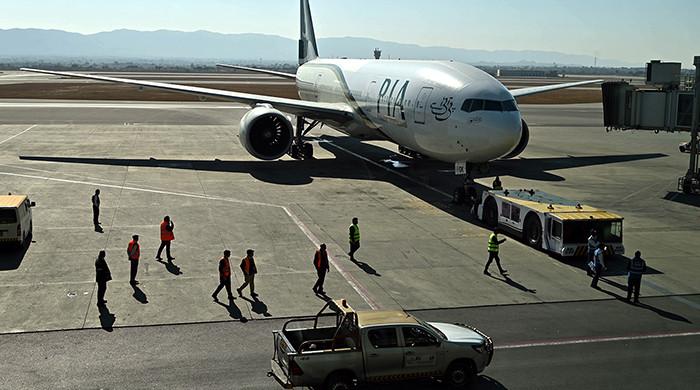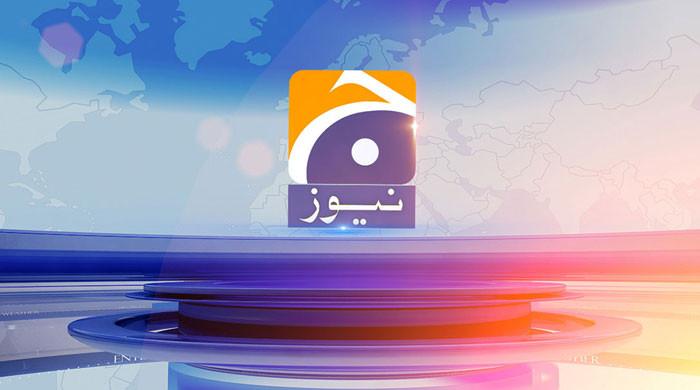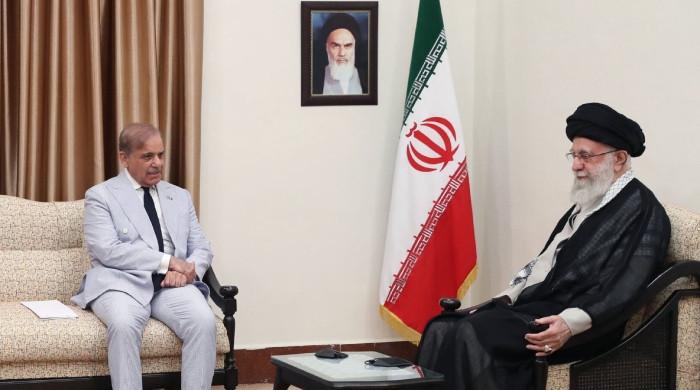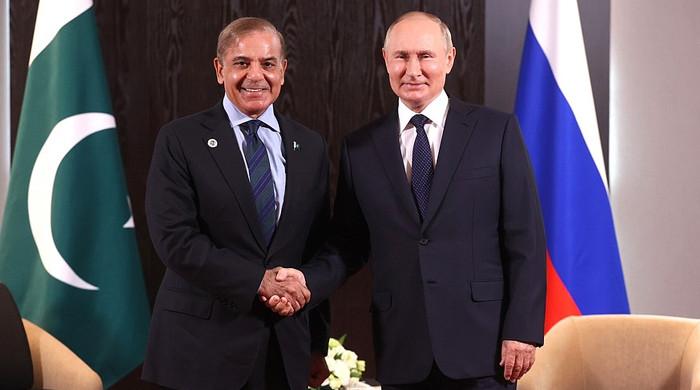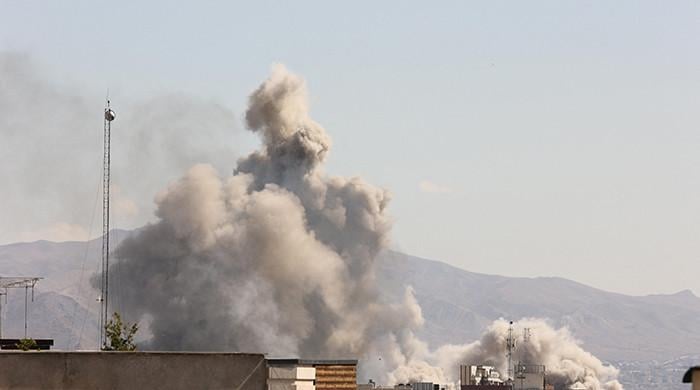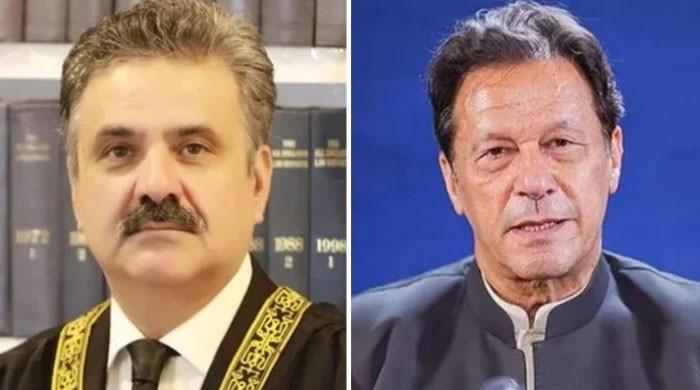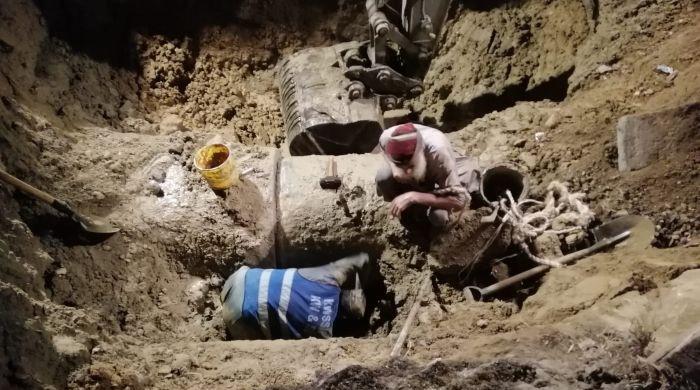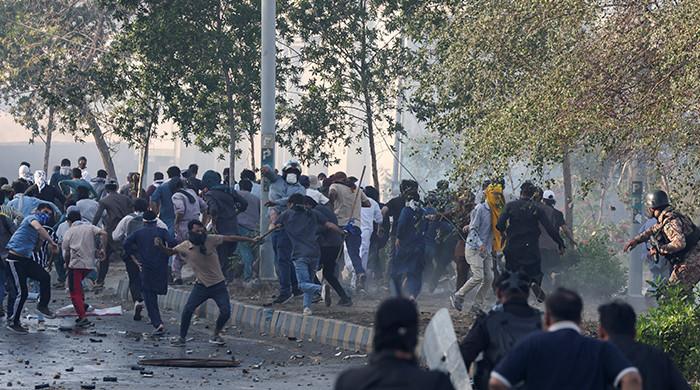PM Imran says coronavirus peak expected end of July, warns of 'a very difficult time' ahead
Coronavirus lockdown does not end the illness but only slows it down, PM Imran Khan said
June 08, 2020
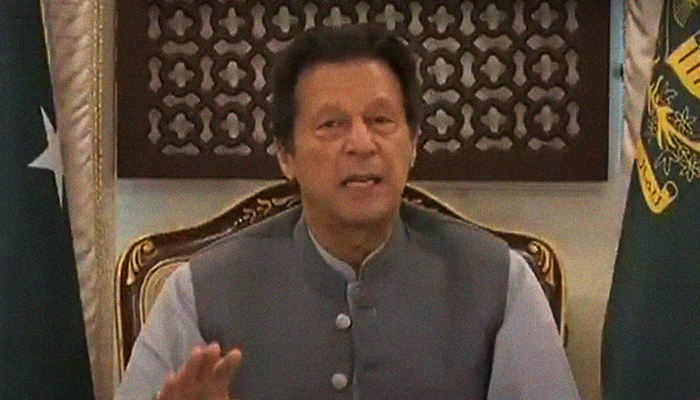
ISLAMABAD: Prime Minister Imran Khan said Monday cases of the deadly coronavirus in Pakistan would hit a peak by the end of July or start of August but warned of "a very difficult time" ahead if people continued to ignore the standard operating procedures (SOPs).
Appealing to the citizens to follow precautionary measures, PM Imran said not following the precautionary measures "will cause harm to the country".
The lockdown to curb the spread of the respiratory illness does not end it but only slows it down, the premier explained. "In the United States, the lockdown was lifted despite 100,000 deaths," he said, adding that America eased its restrictions with SOPs.
"Likewise, our struggle is to open things with SOPs. Our priority is that the peak comes slowly so that our healthcare does not collapse, so that our hospitals do not face pressure as the peak is inevitable.
"According to our calculations, we can manage with SOPs; the peak is likely to come by the end of July or [start of] August.
PM Imran said it was necessary to resume and continue business operations but stressed that people should follow the preventive and precautionary measures.
1,000 beds with oxygen in hospitals
"I am making an appeal: please note that the elderly — with preexisting medical conditions — are at too high a risk," he said. "People are not taking the virus seriously, not following the SOPs."
If people violated the SOPs, Pakistan's elderly and the vulnerable were at high risk and that would endanger the entire country, he said. Face masks were mandatory when going out, he noted, "as it's proven that wearing masks brings a difference of 50%".
His government, PM Imran mentioned, would add nearly 1,000 beds to reduce the pressure on the health facilities.
"We are trying to have 1,000 beds with oxygen at the end of month," he said, adding that there was a mobile application as well that informed people about the availability of beds in any city.
The premier was talking about the Pak Nigehban app launched by the National Command and Operations Centre (NCOC) to check the availability of ventilators in hospitals across Pakistan.
SC rescinds decision on markets
Earlier in the day, the Supreme Court had taken back its decision to reopen the country's markets on weekends.
“Coronavirus does not differentiate between provinces,” said the top court. "The federal government needs to take a lead on this and needs to come up with laws regarding this."
Chief Justice of Pakistan Justice Gulzar Ahmed questioned if all the departments in the country were functioning, why could the Parliament not.
“There need to be laws on a national level to deal with the coronavirus pandemic,” he remarked, adding that laws needed to be implemented on a national level.
The top judge added that nothing would come out of press conferences but instead laws were needed. “China immediately came up with laws to stem the spread of the virus,” he said.
The top judge added that saving lives was the basic need of the hour.
In a hearing on the reopening of markets last month before Eid-ul-Fitr, the top court had announced shopping malls and markets should remain open seven days a week. CJP Ahmed had remarked that if the shops were shut down, then shopkeepers would "die of hunger rather than the coronavirus".
Crackdown on safety breaches
Separately, authorities stepped up the enforcement of the government's safety measures after a rise in the daily number of coronavirus infections pushed total cases to more than 100,000.
Official statistics as of Monday showed 103,671 infections and 2,067 deaths from the coronavirus. Record numbers of new infections over the last 10 days partly reflect increased testing.
The South Asian nation lifted its lockdown last month, putting protocols in place for the reopening of markets, industries, and public transport — including mandatory wearing of masks and social distancing.
But Planning Minister Asad Umar — who is in charge of the national response to the pandemic — told a weekend news conference that many markets and shops had been sealed because of non-compliance over the last few days.
'Educated the masses'
"First, we educated the masses about the protocols, then, we warned them, and now, in the last meeting with the prime minister in the chair, we directed administrations to crack down on places protocols are not being followed," he said.
Of the 23,000 daily tests, more than one in five have been positive over the last 10 days. Before the lockdown was lifted on May 9, the number of tests finding the coronavirus was approximately one in 10, government statistics showed.
Government officials say safety protocols were not being followed, particularly since just before the Muslim holiday of Eid-ul-Fitr, which marks the end of the holy fasting month of Ramadan.
The May 9 decision to lift the lockdown despite increasing infections of the coronavirus was prompted by a worsening economic crisis and unemployment.
Pakistan is the 16th country to exceed 100,000 infections, a Reuters tally showed.
Politicians who contracted coronavirus
Infections among high-profile political personalities has also increased in the country, with Railways Minister Shaikh Rashid and former prime minister Shahid Khaqan Abbasi also testing positive on Monday.
The railways ministry said Monday Rashid was showing not any symptoms but has undergone self-isolation for two weeks.
Earlier in the day, PTI MNA Jai Prakash who attended the National Assembly session last week had tested positive for coronavirus. The lawmaker had reportedly also hosted an event in the evening which was attended by Foreign Minister Shah Mehmood Qureshi.
A day earlier, PPP MPA Sharjeel Memon had tested positive for the coronavirus and had gone into self-isolation.
A long list of lawmakers have so far contracted the deadly virus; over the past few weeks, Minister of State for Narcotics Shehryar Afridi, PML-N's Mian Naveed Ali, and PTI's chief whip in the NA Aamir Dogar tested positive.
PTI MPA Shaheen Raza was the first lawmaker in the country to succumb to the deadly coronavirus. MPAs Mian Jamsheduddin Kakakhel and Shaukat Manzoor Cheema also passed away earlier this month after being on the ventilator for a few days.
Previously, many politicians — including ANP’s Ghulam Ahmad Bilour, Sindh Governor Imran Ismail, Sindh Education Minister Saeed Ghani, NA Speaker Asad Qaiser, and Punjab Assembly Deputy Speaker Dost Muhammad Mazari — had tested positive for coronavirus, after which they went into self-isolation and recovered.




